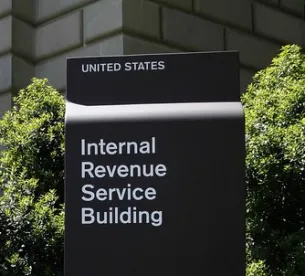The Coronavirus Disease 2019 (COVID-19) pandemic caused the closure of Internal Revenue Service offices and service centers nationwide and the plummeting of new tax examinations. Although certain functions and ongoing cases within the IRS continued during this period, many did not, and new examinations of tax returns and enforced collection activity were put on hold under the People First Initiative. But the IRS is reopening, and taxpayers can and should expect that the agency will resume its normal activities with a focus on issues and areas of noncompliance that it has identified for priority treatment. This GT Alert identifies such priority areas.
High-Net-Worth Taxpayer Audits Are Coming
Starting on July 15, 2020, the IRS will begin examining the tax returns of high-net-worth individuals and private foundations. The IRS has stated that it intends to audit hundreds of these taxpayers by Sept. 30, 2020, using data analytics to coordinate the examinations with related entities and individuals, such as partnerships, other pass-throughs like disregarded entities and S corporations, trusts, and international activities commonly used by the high-net-worth taxpayer. This is part of an IRS campaign that was announced on June 18, 2020, by the Large Business and International (LB&I) Division of the IRS. The goal is to address sophisticated planning used by these high-net-worth individuals which the IRS believes often mask aggressive tax strategies. The Global High Wealth Industry Group of LB&I will conduct these examinations. They are commonly referred to as the IRS Wealth Squad and have been specially trained in complex domestic and foreign financial affairs and structures. The examinations can be expected to be comprehensive and exhaustive.
The IRS has announced that the plan to audit high-net-worth individuals will include those who have not filed income tax returns. Starting on July 15, the IRS will begin sending audit notices to these individuals as well. These audits can go back many years because the statute of limitations does not begin to run until the return is filed. Through an examination treatment stream, this campaign will concentrate on bringing into compliance those taxpayers who have not filed tax returns.
Fraud Enforcement Bolstered
As part of its focus on compliance issues, the IRS formed a new Fraud Enforcement Office in mid-March 2020. It appointed Damon Rowe as the director, a criminal investigation veteran who will provide leadership and direction in the design, development and delivery of support to the IRS in detecting and deterring fraud. Similarly, the Small Business & Self-Employed (SB/SE) Division is led by Eric Hylton, the former Criminal Investigation Division deputy chief. These appointments and new office aim to strengthen the compliance relationships between criminal and civil agents, furthering the IRS’s efforts to detect and deter fraud and strengthen the National Fraud Program. The expectation is that the IRS’s enforcement presence will lead to increased enforcement, including more fraud referrals, civil fraud penalties and coordinated parallel criminal and civil examinations. High priority fraud enforcement areas include employment tax, non-filers, virtual currency, and offshore compliance.
Promoter and Abusive Tax Preparers Investigations on the Rise
In another management move earlier this year, Brendan O’Dell was appointed the coordinator of promoter investigations, an emerging priority concern of the IRS. The coordinator will work with other IRS business units to ensure coordination of ongoing investigations, to develop new approaches to identify promoters of aggressive tax arrangements, and to improve effectiveness. As is the case for all of its enforcement priorities, the IRS will coordinate with other divisions within the IRS and use data analytics to establish new approaches to identify and resolve promoter investigations.
The IRS Lead Development Center works to combat tax abuse by stopping abusive promoters and tax return preparers as early as possible. Specially trained revenue agents conduct the civil investigations and monitor activity, such as injunctions, to ensure that the promoter or abusive tax preparer remains in compliance. The public is encouraged to report an abusive tax return preparer to the Lead Development Center using Form 14242 (Report Suspected Abusive Tax Promotion or Preparers).
Syndicated Conservation Easements Vigorously Pursued
Activity in auditing, litigating, enjoining, and settling syndicated conservation easement transactions continues unabated. These transactions are listed as tax abusive, are the subject of an audit campaign and are on the IRS Dirty Dozen list. The IRS recently made a settlement offer to taxpayers with cases that are pending in litigation and, with four new Tax Court opinions upholding IRS adjustments, the IRS is encouraging taxpayers to seriously consider accepting the settlement offer. How the cases that are pending at various stages in the administrative process will be handled from a settlement perspective remains unclear at this time. Suffice it to say, any taxpayer that invested in a syndicated conservation easement can expect to be audited and to have adjustments proposed. If the cases do not settle, the IRS is committed to trying them in court.
Abusive Micro-Captive Insurance Companies in Examination and Court Settlements
These transactions are identified as “transactions of interest” for tax reporting purposes, are the subject of an IRS audit campaign, and are one of the abusive transactions listed on the IRS Dirty Dozen list. The IRS continues to aggressively audit and litigate these transactions. It also has made settlement offers to some of the taxpayers involved. But, like syndicated conservation easements, the IRS is not giving up on these cases and is committed to moving forward with those that are not resolved. In this regard, it is using all of its tools to gather information. Recently, for example, it served a summons on the Delaware Department of Insurance for records and testimony regarding filings related to captive insurance arrangements. When the Department did not comply, the IRS moved to enforce the summons in district court. And, back in January, said it “will continue to vigorously pursue those involved in these and other similar abusive transactions going forward.” It announced the creation of 12 new examination teams that will use all available enforcement tools to obtain necessary information. The summons to the Department proves the point and the IRS’s commitment to aggressively pursue the taxpayers, promoters, accountants, and wealth planners who participate in these schemes.
Transition Tax for Shareholders of Foreign Corporations to Receive Soft Letters or Tax Examinations
The Tax Cuts and Jobs Act (Internal Revenue Code 965) imposed income tax on U.S. shareholders, including individuals, owning at least 10 percent of the stock of a specified foreign corporation with respect to the shareholder’s share of gross income from the corporation’s accumulated post-1986 deferred foreign income for the last taxable year of the corporation beginning before Jan. 1, 2018. This income was required to be reported in tax returns for the taxable year in which or with which the corporation’s taxable year ended, generally, 2017 or 2018. In November 2019, the IRS had announced a new compliance campaign focused on compliance with this section, expressing concern that taxpayers may incorrectly calculate their earnings and profits to lower their transition tax payment. On July 6, 2020, the IRS established a new LB&I campaign to address this issue. Pursuant to the campaign, the IRS will address transition tax non-compliance by sending soft letters and commencing tax examinations.








 />i
/>i
